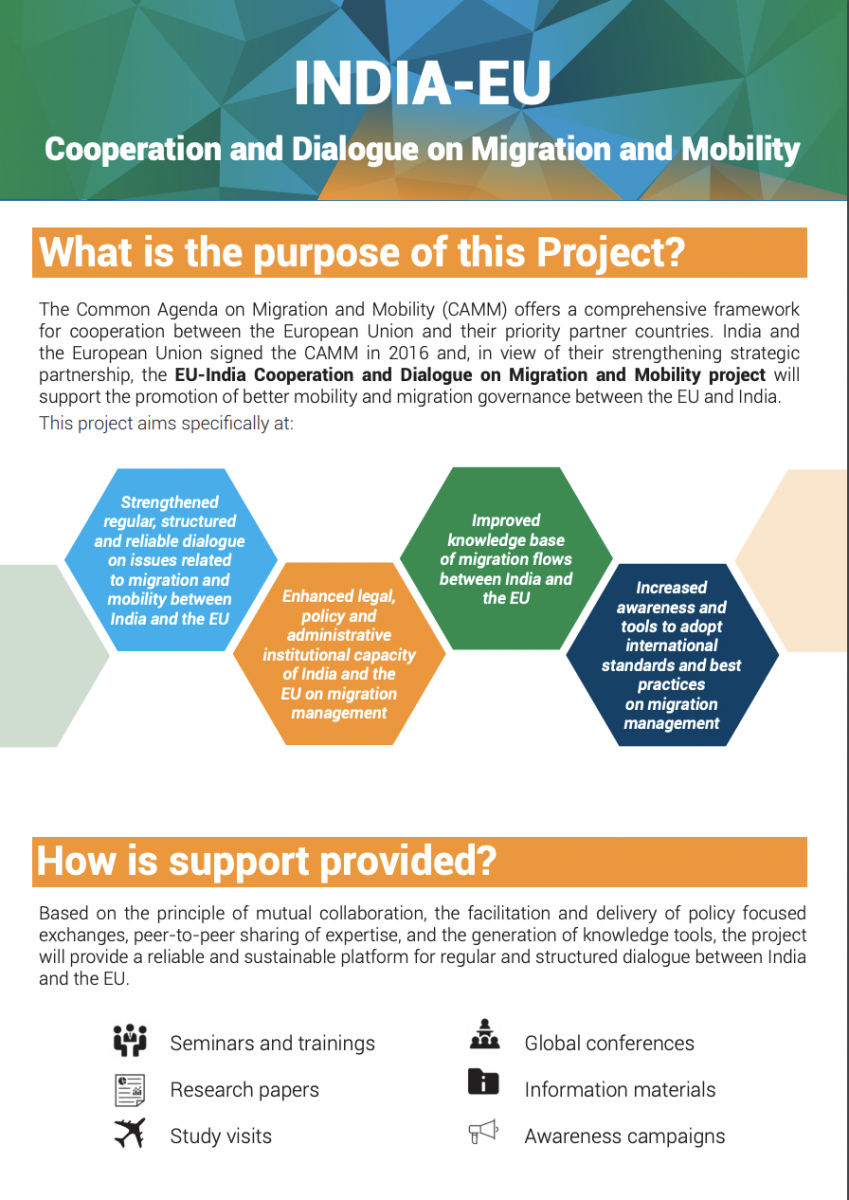Knowledge Platform
EU-India Cooperation and Dialogue on Migration and Mobility
Under the EU funding and support the project aims to enhance management of mobility and legal migration between the EU and India, as well as to prevent and address the challenges related to irregular migratory flows. The project reinforces the continuity and sustainability of migration and mobility cooperation between the EU and India through the implementation of series of capacity building activities in three strategic approaches. It is implemented in cooperation and support of political processes like the HLDMM (High-Level Dialogue on Migration and Mobility) and the CAMM (Common Agenda for Migration and Mobility).
Project published six briefs that look at the positive contribution of migration, since India is a source of low-skilled and high-skilled migrants for destination countries in the EU. Indian migration plays an important role in facilitating EU developments in the fields of science, technology, research, agriculture, agro-business, services and education to name but a few.
In addition, through mapping and studies on the Indian diaspora in a number of European countries (Germany, Ireland and Italy), policy makers are provided with tools for better utilisation of financial and knowledge transfers for development.
